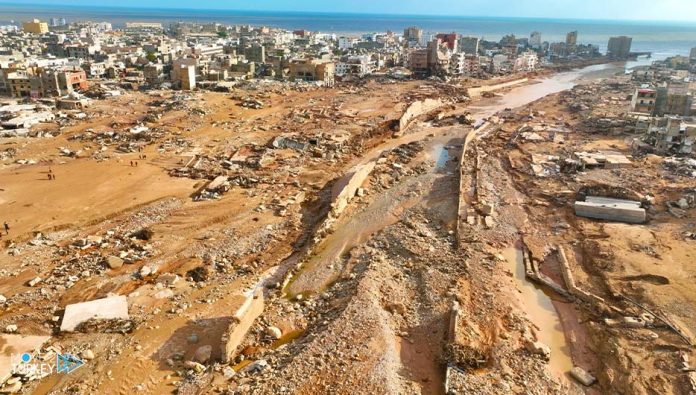Two very different disasters in Libya and Morocco, which share the immense pain of the victims’ families, continue to intensify UN relief efforts, the Organisation’s top aid official Martin Griffiths said on Friday.
He called for solidarity with the people of the two countries and spoke of the pain of people who have been searching for their loved ones for days on end to no avail. In Libya, “some have lost 50 or more family members”, he said. Asked whether the UN was “ready” when disaster struck, Griffiths answered “unequivocally, yes.”
He said the UN dispatched a 15-member Disaster Assessment and Coordination (UNDAC) team from Geneva on Friday within 24 hours of the earthquake, with key staff from the region. The team is now travelling to Libya to help coordinate the humanitarian response to the floods. Griffiths insisted:
“If you don’t have coordination, there’s chaos. And that loses lives.”
The UN relief coordinator says the earthquake has killed about 3,000 people in Morocco. He notes that the first figures are already “quite shocking” and are likely to be updated as rescuers work to find victims under the rubble.
The UN humanitarian chief noted that the initial phase of the search for survivors and identification of the dead was over and the authorities were engaged in providing assistance to the survivors – shelter, food and medicines.
Late last week, about 20,000 people died as a result of severe flooding caused by Storm Daniel. The epicentre of the tragedy is located in Derna; access remains difficult there.
The UN relief chief said that 900,000 people in the country had been affected, “on top of a situation where 300,000 people in Libya already needed humanitarian aid”.
Griffiths said there were significant challenges on the ground in the Libya disaster response. Those included coordinating with the internationally recognised Government and the de facto authorities in the east, discovering the “full extent” of the disaster, as floods and torrents have destroyed buildings and sludge was still concealing the “level of death and need”, as well as “getting the right aid to the right people at the right time”. He said:
“That’s why coordination is so important. It’s not a bureaucratic issue, it’s a prioritisation issue. Helping key humanitarian agencies to do the job they do so well.”
On Thursday, the UN launched a flash appeal for Libya just over US$71 million targeting 250,000 people for the next three months.
Griffiths underlined the most urgent needs in Libya: equipment to find people in the sludge and the damaged buildings, shelter, food, clean water and sanitation, as well as key primary medical care, as the threat of cholera looms large. He stressed that in Libya, “climate and capacity have collided to cause this terrible tragedy”. He said:
“We face a really difficult year ahead and government capacities will be stretched to the limit in both these countries.”
